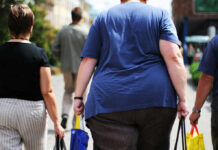
In recent years, the link between social isolation and its effect on health has been getting attention from the medical community. Studies show that loneliness and lack of meaningful connections hurt people’s well-being. The stakes are particularly high for those with obesity. New research shows that social isolation represents one of the most significant early death risk factors for people with obesity. In this post, we will delve into the complexities of social isolation, its intriguing link to poor health outcomes, and how individuals with obesity can navigate this challenge.
What Defines Social Isolation?
Social isolation is defined by a lack of meaningful connection with others and limited participation in social activities. It’s not just about being lonely, it’s about feeling disconnected from any community. And it has serious psychological and physiological effects on health. A study from Finland found that social isolation was related to a 26% increase in all-cause mortality in the general population. The situation is even more dire for people living with obesity – another recent study found that social isolation was associated with a 39% higher risk of all-cause mortality in those individuals.
Social Isolation and Inflammation
It is not entirely clear why social isolation causes worse health outcomes in people with obesity, but scientists have some theories. Loneliness and disconnection from others has been linked with higher inflammation levels in the body. Inflammation can be caused by poor diet, lack of exercise, smoking, and alcohol – all of which are more likely to be present in people who are coping with loneliness and isolation.
Chronic inflammation can lead to medical conditions including heart disease, diabetes, and cancer. People affected by obesity are already at an increased risk of these conditions, so the added burden of social isolation could be a contributing factor to early death rates.
Obesity and Social Barriers
People with obesity can often encounter social barriers that make it harder for them to find a sense of community, leading to greater feelings of social isolation. From stigma and discrimination to physical limitations that make certain activities challenging, people with obesity face an uphill battle.
This can contribute to poor mental health and also create a cycle of behaviors that further lead to a lifestyle that’s hard to get out of.
Tips On Dealing With Social Isolation
Taking care of your social well-being is just as important as taking care of your physical well-being, and yet few doctors mention steps to do so. Here are some tips on reducing the feeling of loneliness and isolation:
● Seek supportive communities online and in person. These can be communities that share the same interests and hobbies as you, or groups that specifically focus on supporting and uplifting those who live with obesity.
● Engage in physical activity like exercise classes or hiking clubs to enjoy the physical and psychological benefits of a group activity.
● Volunteer in your community to enjoy a greater connection to others along with a sense of purpose.
● Seek professional help from counselors, therapists, or support groups that specialize in loneliness and isolation.
Social isolation is often overlooked in favor of more tangible health interventions, but as studies have shown, it’s a critical factor in early death risks for people with obesity. Solving this widespread issue requires a multifaceted approach. By tackling social isolation, individuals with obesity can improve both their mental and physical health, paving the way for a more fulfilling and healthier life.



















